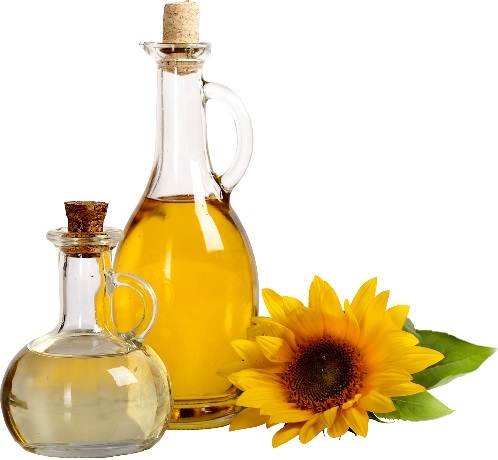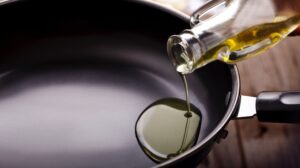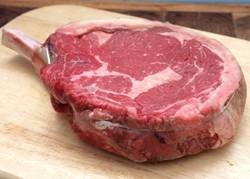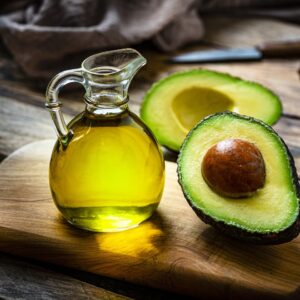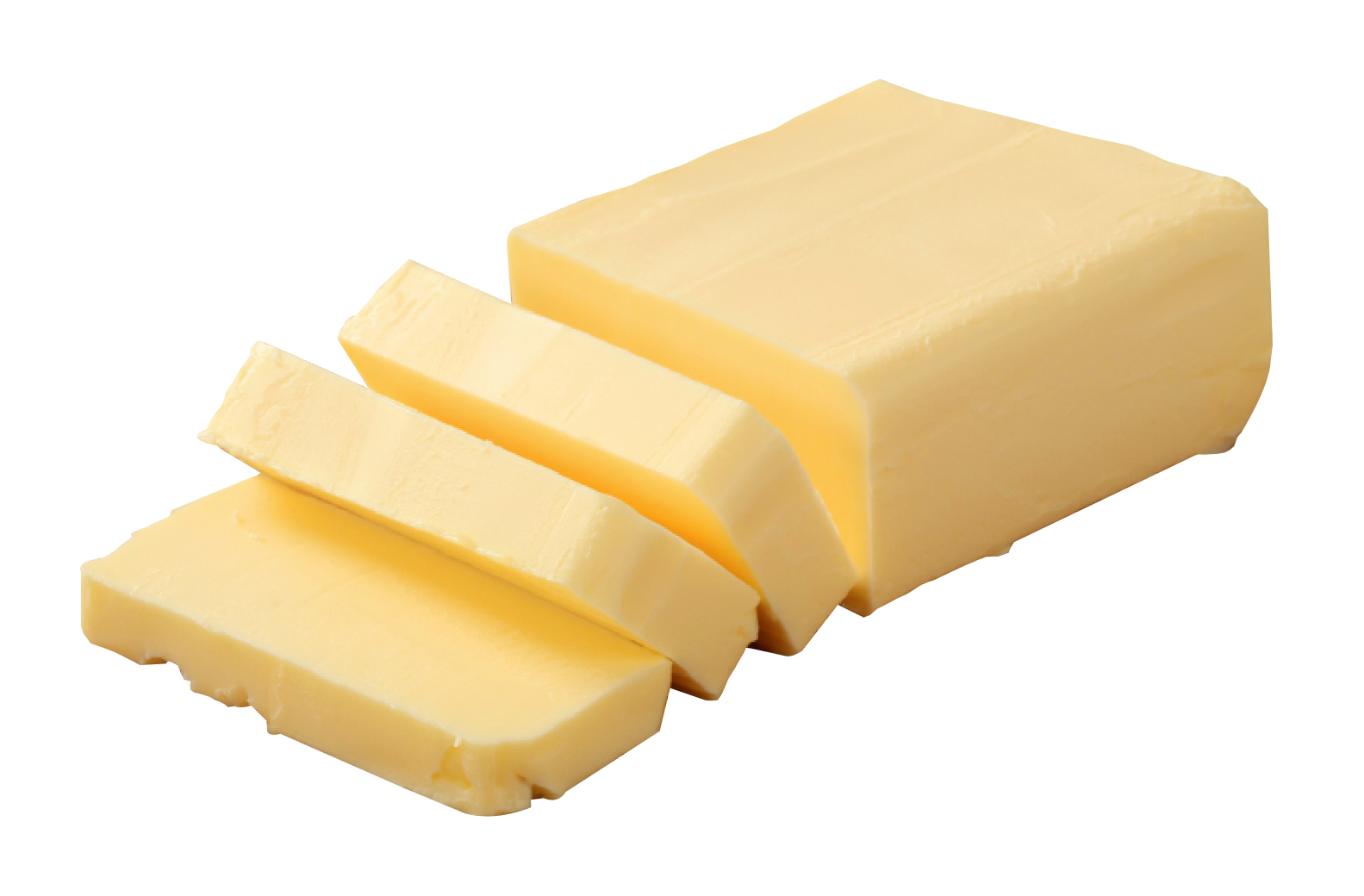
Coconut Oil - The healing oil
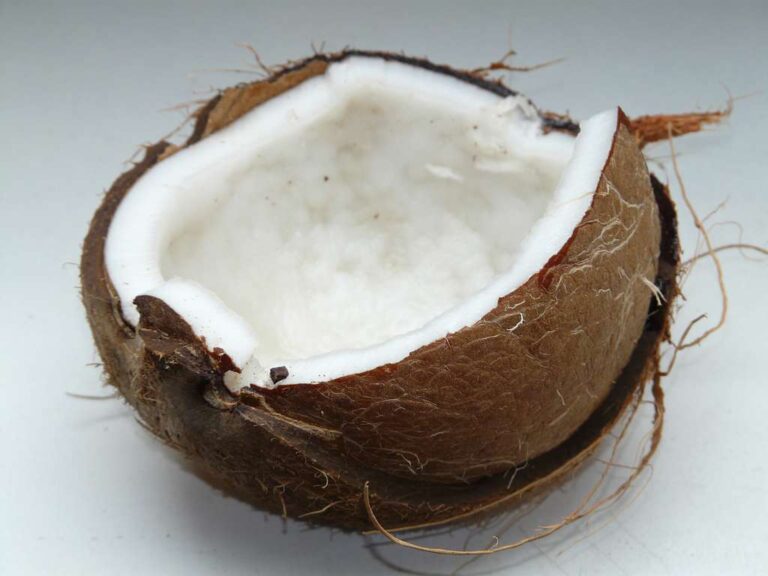
Coconut oil contains medium chain triglycerides (MCTs).
MCTS have been shown to improve fat metabolism and help weight-loss [Watanabe et al, 2022]. These triglycerides have the usual glycerol backbone with 3 attached fatty acids, but for MCT’s, 2 of these 3 are medium chain-length fatty acids (MCFAs), having only 8-12 carbons (C’s) in their “bodies”. 80.7% of coconut oil’s saturated fat is in the form of MCT’s [Orsavova, 2015].
Almost half (47.7%) of the fatty acids in coconut oil are the MCT LAURIC ACID (C12:0), which is a very protective fatty acid found in mother’s breast milk.

Highly Saturated / Stable Oil for Cooking.
Coconut Oil contains 92% saturated fat making it extremely stable for use in cooking – much more so than other vegetable oils. It will not easily oxidize (produce free radicals) when heated. Use expeller-pressed coconut oil for cooking, which does not taste or smell of coconut.
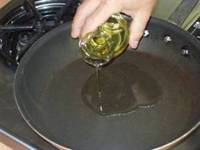
Health Benefits of Coconut Oil
Diabetic Aid
Cells can make energy from medium chain-length fatty acids (MCFA’s) without requiring INSULIN.
Most Americans (not just diabetics) have some degree of INSULIN resistance and do not get enough energy from their food. Coconut oil does not depend on the INSULIN system being in working order. Virgin Coconut Oil has a substantial effect in reducing blood sugar levels.
Lauric Acid in coconut oil is antibiotic, antiviral, anti-fungal and anti-parasitic
LAURIC ACID breaks down into a substance, called monolaurin, which dissolves the lipid envelope that protects most pathogenic microbes.
E.g. viruses HIV, herpes, cytomegalovirus, influenza, various bacteria including listeria monocytogenes and helicobacter pylori, and parasitic protozoa such as giardia lamblia.
LAURIC ACID is the major fat contained in a human mother’s breast milk, and a major reason nursing infants have a high resistance to becoming sick.
Coconut Oil Increases Metabolism.
- MCFA’s do not require any enzymes or carriers to be transported by the body or to cross the cell membrane. Once in the cell they are burned for energy rather than stored as triglycerides, which increases the body’s metabolism above normal. (known as thermogenesis).
- Provides Instant Energy. People with low energy notice they have energy again.
- Thyroid gland activity is increased. Those with under-active thyroid glands find their basal temperature becomes normal. When coconut oil is added to a balanced diet in the presence of adequate thyroid hormone, LDL-cholesterol is enzymatically converted to the vital anti-aging steroids, PREGNENOLONE, PROGESTERONE and DHEA. These hormones are required to help prevent heart disease, senility, obesity, cancer and other diseases associated with aging and chronic degenerative diseases.
- Weight Control. The increase in thyroid function and metabolic rate explains why people and animals that regularly eat coconut oil are lean. (Pig farmers tried to use coconut oil to fatten their animals but instead found it made the pigs lean!)
Coconut oil cleanses the colon
- Gently softens and loosens old fecal material.
Skin, Dandruff, Hair, Deodorant
- MCFA’s in coconut oil are identical to the fats found in the skin’s sebum.
- Coconut oil protects the skin. From sunburn, drying, chapping, and pathogenic bacteria. The main reason coconut oil is used in suntan lotions is because of its high saturated fat content, which will not oxidize and produce aging free radicals, when exposed to light, heat and air. Use virgin coconut oil every day, gently massaging into face and neck

It promotes overnight healing. Rubbed into painful, bleeding cracks on fingers (a winter complaint)
For dandruff or red spots on the scalp. Rub coconut oil into the scalp, leave on for about 20 minutes, then shampoo twice (Even better than tea tree oil shampoo)
Rub it on red spots on your skin. Adding a drop or two of lemon or lavender essential oil for improved results
Coconut oil can be used as an underarm deodorant
Helps hair shine. When included in the diet and/or used externally in a hair conditioner recipe.
Coconut has been wrongly maligned in the past.
Coconut oil used to be commonly, commercially used in cookies, crackers and pastries, but the care lobbied by the domestic vegetable oil industry, forced manufacturers to abandon this safe and healthy oil in favor of hydrogenated soybean, corn, canola and cottonseed oils. Just for the record, since coconut’s MCFA’s are not present in the bloodstream, they can not be responsible for heart disease.
Coconut oil comes in two forms
Virgin Coconut Oil (VCO)
- A good quality oil when extracted from fresh coconut without high heat or chemicals – Retains the taste and scent of coconut.
- VCO is the preferred form for coconut oil’s full health benefits – Typical oral dosage is about 2-3 Tablespoons per day.
Expeller Pressed Coconut Oil (EPCO)
- An excellent cooking oil choice
- A good quality oil, made by mechanical extraction – not by using solvent extracts. EPCO is less expensive than VCO. Steam deodorization removes the coconut taste and scent.

References
Orsavova J et al, Int. J. Mol. Sci. 2015, 16, 12871-12890
Watanabe S, Tsujino S. Applications of Medium-Chain Triglycerides in Foods. Front Nutr. 2022 Jun 2;9:802805. doi: 10.3389/fnut.2022.802805. PMID: 35719157; PMCID: PMC9203050. Link














